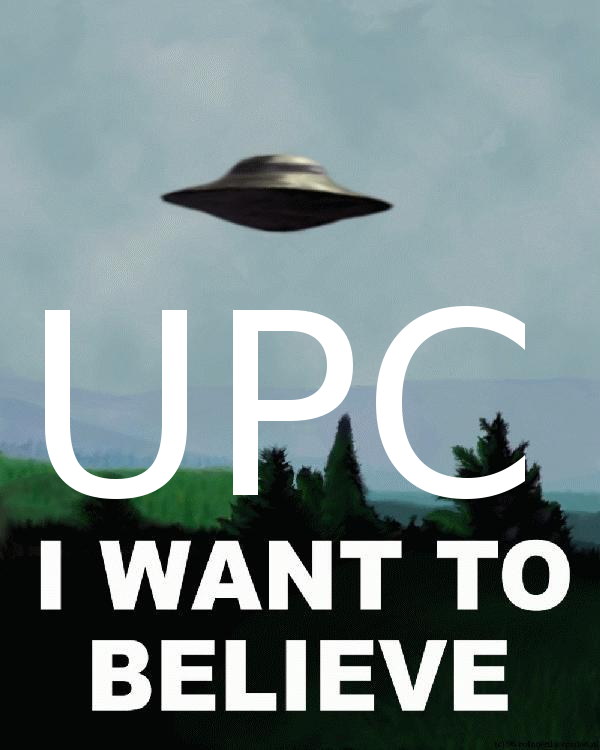
 Summary: The UPC lobby (patent law firms) wakes up and the media props up the illusion of UPC progress, owing to nothing more than an EPO report/guidance that is oddly-timed and totally inadequate (makes false assumptions)
Summary: The UPC lobby (patent law firms) wakes up and the media props up the illusion of UPC progress, owing to nothing more than an EPO report/guidance that is oddly-timed and totally inadequate (makes false assumptions)
THE EPO's release/announcement of the PDF yesterday morning, combined with various other factors, would have us believe there's some kind of progress. But there's none. It's merely an illusion. Benoît Battistelli is leaving in 9 months, his protector leaves in one month, and Germany might not be able to do anything until next year (if ever). As for the UK, there's this new publication about the "UK patent system", published yesterday by the UK-IPO. Managing IP's pro-UPC front has already spun this as some kind of thing about the UPC. But it's not. "Timely report by @The_IPO," it wrote, "3 main UPC states compared. Majority UK patents via @EPOorg. UK legal costs higher but ok..."
"They're just blowing wind into the sails using their bare mouths."When they say "UPC states" they just mean EU states. Putting aside all that propaganda, there's nothing to see here. They're just blowing wind into the sails using their bare mouths. Also yesterday there was this tweet from Dr. Luke McDonagh, linking to this report from yesterday and adding: "UK retreat from CJEU pledge leaves possibility that UK Unified Patent Court division could stay (if UPC goes ahead)..."
As I've told him (publicly), "the article says nothing about the UPC (which is dead for reasons other than the UK)."
Why this obsession with the UPC and why are particular Brits trying to interject the UPC into things that have nothing to do with it? CJEU's post-Brexit status is still an unknown, as it always was.
It did not take long for UPC booster Darren Smythââ¬Â to engage McDonagh with tweets like: "Some of us (controversially) considered that the political pledge re CJEU never extended to the UPC as not a UK court but international [...] Just remembered, I even wrote a blogpost about it" (that was before UPC was in a limbo again).
"Why this obsession with the UPC and why are particular Brits trying to interject the UPC into things that have nothing to do with it?"So basically, nothing has changed except a bunch of UPC proponents (for their own selfish interests) harping/raving about it. Regarding the UPC's status in Germany and the EPO's report, there were lots of puff pieces about it yesterday. These sometimes reused photos from an event that EPO had wasted 3 millions euros on (for one afternoon!), paying so-called 'reporters' (PR generators) in the process. This new puff piece (propotional headline, too), which helps glorify Battistelli, makes one wonder about the motivations. "Even as Europe’s ambitious plan to introduce a single patent system still hangs in the balance," it says, "the European Patent Office (EPO) released on August 18, 2017 a Unitary Patent Guide, which outlines procedures for inventors and proprietors interested in registering a patent under the new system."
Here is the part about the UK and Germany: "Mired in the Brexit conundrum, the UK said in November 2016 that it is “proceeding with preparations to ratify the UPCA” (although once Brexit is fully implemented, the UK will also exit its membership in the EU, which will introduce a new layer of complication). Meanwhile, Germany put on hold its vote on the UPCA in June 2017 on questions raised about its constitutionality."
WIPR wrote about that too yesterday. It said that "Germany and the UK both need to ratify the UPC Agreement before the project can become a reality."
"Suffice to say, Team UPC and Team Battistelli pretend that the UPC is inevitable even though it's likely quite stuck/already dead due to various issues, including corruption."It's very likely that neither will happen, for reasons we explained here before.
Suffice to say, Team UPC and Team Battistelli pretend that the UPC is inevitable even though it's likely quite stuck/already dead due to various issues, including corruption.
One decent article that we saw about the UPC yesterday came from a British site for lawyers. It cites/quoted a Munich-based patent law expert Dr. Michael Schneider of Pinsent Masons. Here are some portions:
Schneider said: "There are apparently four grounds to the complaint, which each raise a question over whether the proposed reforms align with Germany's constitution. The constitution regulates the basis for Germany's participation in, and the internal workings concerned with, the transfer of powers to the EU. It also sets out the fundamental elements of the constitution, such as the democratic legitimacy and judicial rights, for example, which have to be safeguarded in such transfer."
"If viewed from this angle, as the complainant apparently advocates, in essence it requires that any transfer of sovereign rights from Germany's judiciary to another organisation – in this case the transfer of patent litigation powers to the UPC – has to approved by a certain quorum and majority of votes in parliament. The late night vote in the Bundestag which passed the UPC laws would call into question whether there was the required quorum to pass the legislation," he said.
"If this was the only basis of the legal challenge then it would be possible to foresee a straightforward solution whereby the legislation could be reintroduced before the Bundestag and Bundesrat after the September elections to achieve the two-thirds majority of votes needed to pass the thresholds for compliance with the constitution, but there are two further grounds of complaint that have been raised," Schneider said.